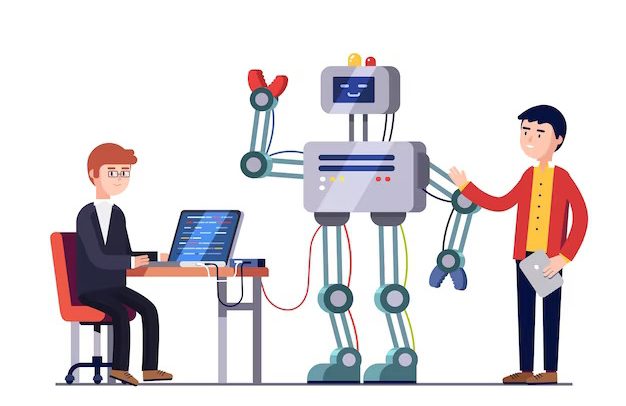
Artificial Intelligence is among the largest and quickest technological wave that has hit the world of tech. Globally the AI market is estimated to grow at a rate of 154 percent.
According to the research done by Gartner about Artificial Intelligence:
1.AI will make a business value worth USD 3.9 trillion by 2025.
2. It is estimated that AI will be the most disruptive technology in the coming years due to the enhancements in computing power, capacity, speed, and data diversity, and progresses in Deep Neural Networks (DNN).
3. Decision automation systems are kind of advanced-level systems that leverage AI to automate the business processes or works, such as translating voice, classification of data which cannot be easily classified by conventional systems, etc. will grow to 16 percent by the next 4–5 years, which will be a huge jump of 14 percent!
In this article, let’s understand how to learn Artificial Intelligence as a Beginner in 2023 and be an artificial intelligence engineer.
Prerequisites
The first step and the most important aspect of becoming learn AI as a beginner will be to get a bachelor’s degree. A person can choose from any specialization from the following:
Mathematics
Statistics
Information Technology
Computer Science
Economics
Finance
Having an advanced degree is a must-have prerequisite that is required to be a part of this growing industry. Apart from that having a master’s degree will be a great added advantage too. They can consider doing a master’s in one of the following area
Mathematics
Computer Science
Cognitive Science
Data Science
Artificial Intelligence
Key skills to become an AI engineer

To be a successful AI engineer, one should gain knowledge and excel in the following technical and non-technical skills, such as:
Technical skills
- Programming skills
They are required to gain a better understanding of popular programming languages, like C++, Java, R, and Python. Because they usually use their knowledge of programming languages to build and deploy several AI models.
2. Statistics, probability, and linear algebra
AI models are designed with the help of algorithms that are mainly based on statistics, algebra, and calculus. Apart from that, one must be familiar with probability to interact with artificial intelligence’s most common ML models such as:
- Hidden Markov
- Gaussian mixture
- Naive Bayes models
3. Deep Learning and Neural Networks
Deep Learning and Neural Networks are very helpful for complex pattern recognition. A neural network is a system (software or hardware), which functions similarly to a human brain. Based on the neural functionality of the human brain, the space of artificial neural networks got developed. AI models replicate human understanding that can also be leveraged for works that possess capabilities far beyond humans. With the help of deep learning and neural networks many works get simplified, such as image classification, translation, and speech recognition, all of these play an essential role when it comes to artificial intelligence.
4. Natural Language Processing (NLP) libraries and tools
Natural Language Processing (NLP) libraries are a combination of computer science, information engineering, linguistics, and AI into one and programming the system to process and analyze massive datasets. An artificial intelligence engineer should do specific tasks highly on NLP, such as language, audio, and video processing by leveraging several different NLP libraries and tools, such as:
- NTLK
- Gensim
- word2vec
- TextBlob
- CoreNLP
- Sentiment Analytics
- PyNLPI
5. Audio, video, and language processing
One is required to have a workable knowledge of a few libraries to be able to achieve language processing. A few libraries are Gensim and NLTK, followed by techniques like summarization, sentimental analysis, and word2vec. Natural Language Processing (NLP) combines linguistics and computer science and it usually deals with either audio or video.
Non-technical skills
- Industry knowledge
Successful AI projects are those that tackle the real pain points effectively. It is essential to have a good knowledge of the industry in which one is working and the ways one can reap several benefits for the business to grow.
2. Critical thinking
Individuals must stay updated with the latest industrial developments and data so that they can build better outputs depending on the findings. They must also adopt the best business practices as well as all the latest approaches to AI.
3. Collaboration skills
AI engineers in this area often do tasks within a team of other AI developers and IT professionals, so they are required to possess a certain ability to work efficiently and effectively within a team.
4. Iteration of Ideas
Iterating on ideas is quite essential for finding one that works. An individual should use various types of techniques to fabricate realistic scale models of solid parts or assemblies with the help of 3D computer-aided designs.
AI certification
By doing an AI certificate programfrom prominent organizations like Microsoft or the Artificial Intelligence Board of America (ARTiBA) one can acquire better knowledge and enhance skills in this field. If an individual wants to pursue a career in this field of AI then they should be ready with the right skill set and certifications.